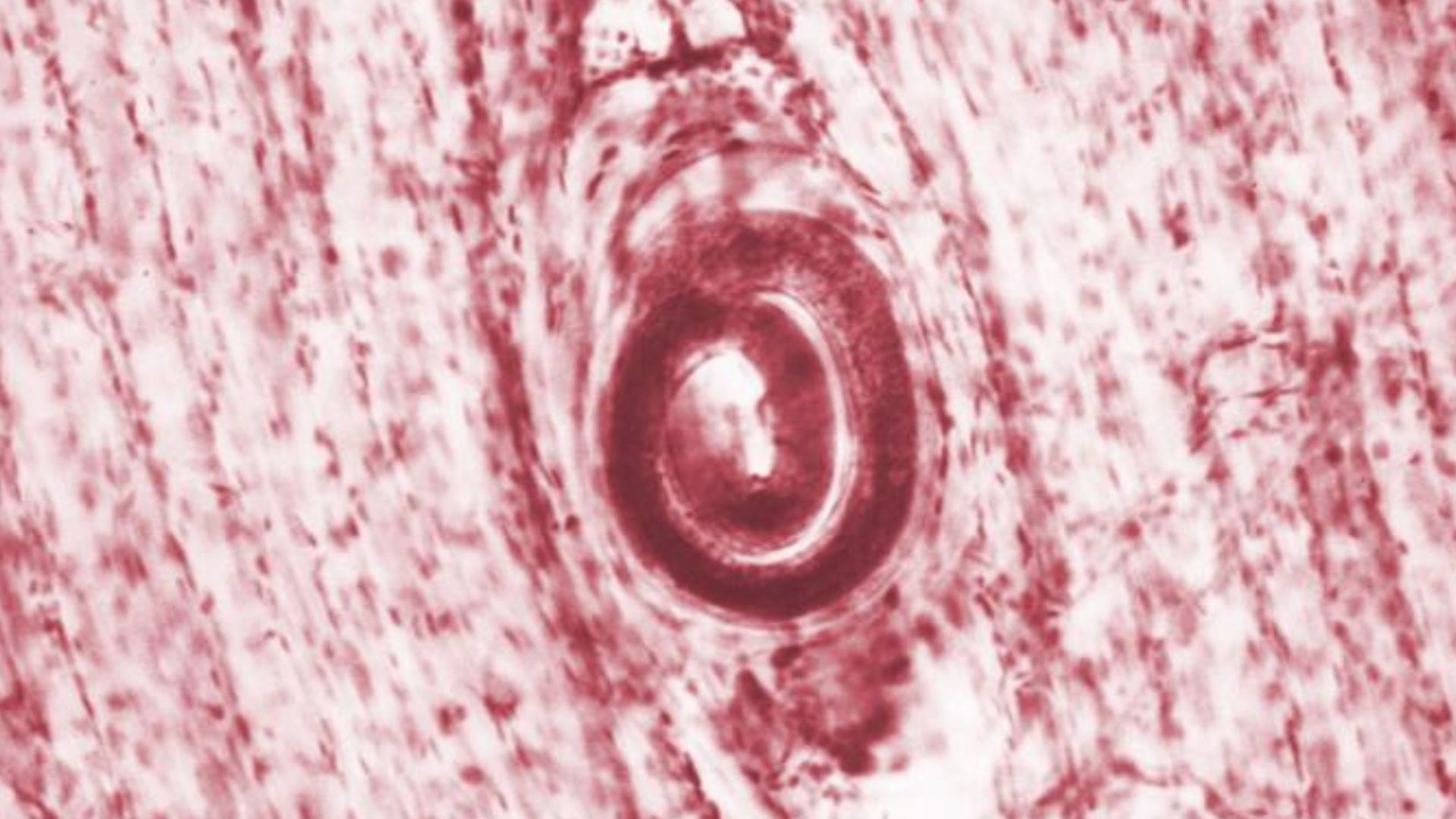Parasitic worms infect 6 after bear meat served at family reunion
Parasitic worms infected a family who'd shared a meal that included undercooked bear meat kabobs.

Get the world’s most fascinating discoveries delivered straight to your inbox.
You are now subscribed
Your newsletter sign-up was successful
Want to add more newsletters?
Join the club
Get full access to premium articles, exclusive features and a growing list of member rewards.
Six family members caught a rare parasitic worm infection after sharing a meal that included black bear meat, which was initially served rare after being stored frozen for more than a month.
Two of the people reported only eating vegetables at the meal, so it's likely that the infected meat contaminated these sides at some point.
The worm infection, called trichinellosis, is rarely reported in the United States, according to a new report of the case published Thursday (May 23) by the Centers for Disease Control and Prevention (CDC). Between 2016 and 2022, only 35 probable and confirmed cases of the disease were recorded. "Bear meat was the suspected or confirmed source of infection in the majority of those outbreaks," the report noted.
Trichinellosis occurs when people inadvertently consume larvae of a roundworm in the Trichinella genus. The worm commonly infects bears, wild boars, wildcats, foxes, wolves, seals and walruses. People typically become infected after consuming raw or undercooked meat from infected animals.
Related: Parasitic worms found in man's brain after he likely ate undercooked bacon
Historically, people in the U.S. sometimes contracted the infection from raw or undercooked commercial pork products, but modern regulations and cooking guidelines have lowered this risk.
The newly reported case took place in 2022, when a 29-year-old man in Minnesota was hospitalized with a fever, severe muscle aches and pains and swelling around the eyes. He was also found to have a high number of immune cells called eosinophilia, a sign of infection.
Get the world’s most fascinating discoveries delivered straight to your inbox.
Within a span of about half a month, the man had sought medical attention for his symptoms four times and was hospitalized twice. During the second hospitalization, he reported having consumed bear meat, and the medical team started him on medication for parasitic worms, just in case. They later confirmed he was carrying antibodies against Trichinella worms, and an investigation was launched to check for more cases.
About a week before he got sick, the Minnesota man had met up with nine family members in South Dakota. They'd shared a meal that included kabobs made with black bear (Ursus americanus) meat, which was originally harvested in Canada by one of the attending family members. It had been frozen for 45 days before being thawed, cooked and served with vegetables.
"The hunting outfitter had recommended freezing the meat to kill parasites," the CDC report notes. But some Trichinella species can survive being frozen. (This includes Trichinella nativa, which turned out to be the species likely involved in this case.)
"The meat was initially inadvertently served rare, reportedly because the meat was dark in color, and it was difficult for the family members to visually ascertain the level of doneness," the report noted. Some family members noticed the meat was underdone while eating it, and it was then cooked a bit more before being served again.
The affected family members hail from Arizona, Minnesota and South Dakota, and local public health officials were able to contact and interview eight of the dinner attendees. The ninth is reportedly healthy.
Six of the eight people had developed symptoms consistent with trichinellosis. The presence of antibodies against the parasite were confirmed in two people, while the other four cases are considered "probable." Antibody testing can be tricky for this disease, because it's not super sensitive early in the course of a person's illness. All six sickened people recovered, three of whom did so after being treated in hospitals.
Samples of additional frozen bear meat from the family member's freezer were sent to the CDC for analysis, and scientists found moving Trichinella larvae in the flesh — specifically, the worms were T. nativa. The analyzed meat had been frozen for 110 days in a household freezer.
"The family member who harvested the bear and provided meat samples for testing was advised to discard any remaining meat," the report states.
Trichinellosis can cause a range of symptoms, including nausea, diarrhea, fatigue, belly pain, headache and chills. As the infection progresses, worms can migrate from the intestines into the skeletal muscles, heart muscles and nervous system, including the brain. Severe infections can cause people to have heart problems and trouble coordinating movements and breathing, sometimes leading to death.
For people cooking wild game meat, heating the meat to an internal temperature of at least 165 degrees Fahrenheit (74 degrees Celsius) will kill any Trichinella parasites. Authorities recommend confirming this temperature with a meat thermometer, as "color of meat is not a good indicator of cooking adequacy."
This article is for informational purposes only and is not meant to offer medical advice.
Ever wonder why some people build muscle more easily than others or why freckles come out in the sun? Send us your questions about how the human body works to community@livescience.com with the subject line "Health Desk Q," and you may see your question answered on the website!

Nicoletta Lanese is the health channel editor at Live Science and was previously a news editor and staff writer at the site. She holds a graduate certificate in science communication from UC Santa Cruz and degrees in neuroscience and dance from the University of Florida. Her work has appeared in The Scientist, Science News, the Mercury News, Mongabay and Stanford Medicine Magazine, among other outlets. Based in NYC, she also remains heavily involved in dance and performs in local choreographers' work.
 Live Science Plus
Live Science Plus










